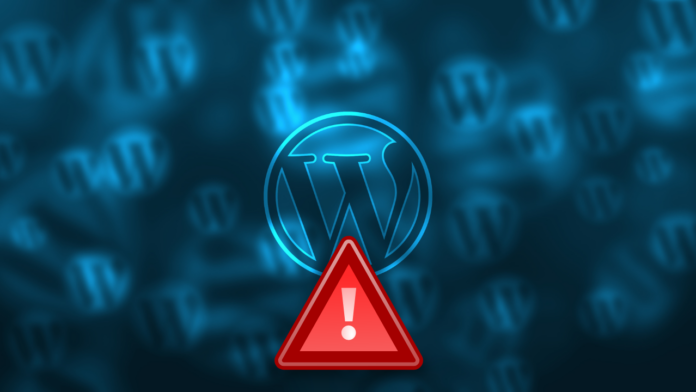A critical vulnerability has been discovered in the popular LiteSpeed Cache plugin, which is used by over 6 million WordPress sites worldwide. The vulnerability, an unauthenticated stored Cross-Site Scripting (XSS) flaw, exposes affected websites to serious security risks, including potential privilege escalation and the theft of sensitive data. First reported by security researcher TaiYou to the Patchstack bug bounty program, this vulnerability affects the caching plugin in versions prior to 6.5.1, and has since been addressed in an update. However, websites that have not updated remain at risk.
This article explores the details of the vulnerability, how it works, and why it represents a significant threat to WordPress users. We will also offer guidance on how to protect your website and prevent similar threats in the future.
Understanding the LiteSpeed Cache Plugin and the Vulnerability
The LiteSpeed Cache plugin is one of the most widely used WordPress plugins, renowned for its server-level cache and comprehensive optimization features. It supports WordPress Multisite, WooCommerce, bbPress, and Yoast SEO, making it a go-to choice for millions of websites seeking to improve performance and load times.
The discovered vulnerability, identified as CVE-2024-47374, is a stored XSS flaw that allows unauthenticated attackers to inject malicious code into the plugin’s CSS queue through specially crafted HTTP headers. This malicious code is then stored and executed in the admin interface, enabling attackers to manipulate the website, steal sensitive information, or escalate privileges by sending a single HTTP request. The lack of proper sanitization and escaping of user inputs in the plugin’s UCSS (unique CSS) generation functions is at the root of the issue.
How the Vulnerability Works
The vulnerability stems from two main functions within the LiteSpeed Cache plugin:
- _ccss() function: This function generates and stores CSS for the website, taking inputs like the user-agent and varying parameters without proper sanitization. These inputs can be manipulated by sending a malicious HTTP request.
- load() function: The load function handles incoming requests for UCSS generation. Similar to the _ccss() function, it processes user-supplied data, which is not properly sanitized before being saved to the queue.
Attackers can exploit the vulnerability by injecting malicious scripts through HTTP headers, which are later executed when an admin views the queued CSS files. This could result in the admin’s credentials being stolen, malicious content being inserted into the site, or even full control of the WordPress instance.
Patch and Mitigation
The vulnerability has been addressed in LiteSpeed Cache version 6.5.1. The patch ensures that user inputs are properly sanitized using the esc_html() function, preventing malicious code from being stored and executed in the plugin’s interface.
To protect your site, users are strongly advised to update to LiteSpeed Cache 6.5.1 or a later version immediately. Failing to update leaves sites vulnerable to exploitation, as attackers can inject scripts without the need for authentication, putting both the site and its users at risk.
10 Ways to Avoid XSS Vulnerabilities in the Future
- Regularly Update Plugins: Always ensure that you are using the latest versions of plugins and themes. Vulnerabilities are often patched in new releases, making regular updates essential for security.
- Use Security Plugins: Consider using WordPress security plugins like Patchstack, Wordfence, or Sucuri to scan your website for vulnerabilities and protect against malicious activity.
- Implement Input Validation: Always sanitize and validate user inputs, especially those that come from HTTP requests or form fields. This prevents attackers from injecting malicious data.
- Escape Output: When displaying data on a webpage, ensure that it is properly escaped using functions like
esc_html()oresc_attr()to prevent XSS attacks. - Limit User Privileges: Restrict administrative access to only trusted users and consider implementing two-factor authentication (2FA) for added security.
- Disable Unused Features: If you are not using certain features of a plugin, like CSS Combine or UCSS generation, disable them to minimize the attack surface.
- Regularly Review Code: Conduct code reviews and audits of your website, especially if you are using custom code or plugins that handle sensitive user data.
- Monitor Logs: Set up logging and monitoring for unusual activity on your site. This can help detect and mitigate attacks early before they cause significant damage.
- Backup Your Website: Regularly back up your site’s files and database. In the event of a security breach, having a recent backup can help you quickly restore your site.
- Harden WordPress Security: Follow WordPress security best practices, such as using a strong password policy, disabling file editing, and limiting login attempts.
Conclusion
The discovery of the unauthenticated stored XSS vulnerability in the LiteSpeed Cache plugin highlights the importance of proactive security measures for WordPress sites. With over 6 million sites at risk, updating to the latest version of the plugin is critical for safeguarding your website and preventing potential attacks. XSS vulnerabilities, when exploited, can lead to severe consequences, including data theft, defacement, and privilege escalation.
By following best practices such as keeping plugins updated, validating user inputs, and using security plugins, you can significantly reduce the risk of falling victim to such vulnerabilities in the future.
Want to stay on top of cybersecurity news? Follow us on Facebook, X (Twitter), Instagram, and LinkedIn for the latest threats, insights, and updates!


